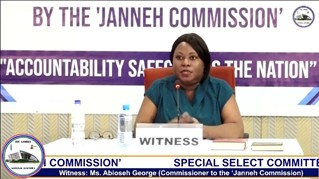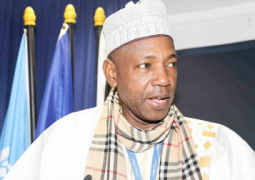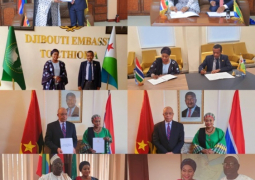
“We were in our chambers when a call came in from the Office of the President. The chairman put it on speaker. They said ministers wanted to stop the sale and propose an alternative use for the tractors. We agreed to pause, but we felt it should have been raised much earlier, before the sales began.”
According to her, the Commission viewed the government’s request as an intrusion into its work. “We were supposed to be independent. The chairman always reminded us nobody can manipulate us. We were concerned about how it would be perceived, stopping sales midway. It didn’t sit well with some of us.”
Despite assurances that the government would send a proposal, Ms. George said no submission ever came. “Nothing came from government,” she told the Committee. “So we decided to restart the sales after reports emerged that engines and parts were being removed from the tractors.”
She described the episode as the beginning of strained relations between the Commission’s first secretary, Mr. Mamadi Kurang, and other officials. “When the sales were stopped, he didn’t take it kindly, tempers were high,” she said. “He stood by his principles, but the situation grew tense eventually, it affected his working relationship with both the lead counsel and some members of the secretariat.”
Ms. George confirmed that tensions between Mr. Kurang and the Commission’s lead counsel, Amie Bensouda, deepened after the incident. “Their relationship was not smooth, there were letters exchanged, accusations and counter-accusations but most were not substantiated.”
When questioned about whether the Commission believed the government’s actions amounted to interference, Ms. George replied “yes, to some extent, it was interference.”
She further disclosed that after Mr. Kurang refused to apologise to the Office of the President, he was dismissed from his role. “The Attorney General at the time called the three commissioners to his office. He didn’t ask for our opinion. He simply informed us that Mr. Kurang was relieved of his duties,” she said. “It was a shame because we started the process together. It would have been nice to complete it together.”





